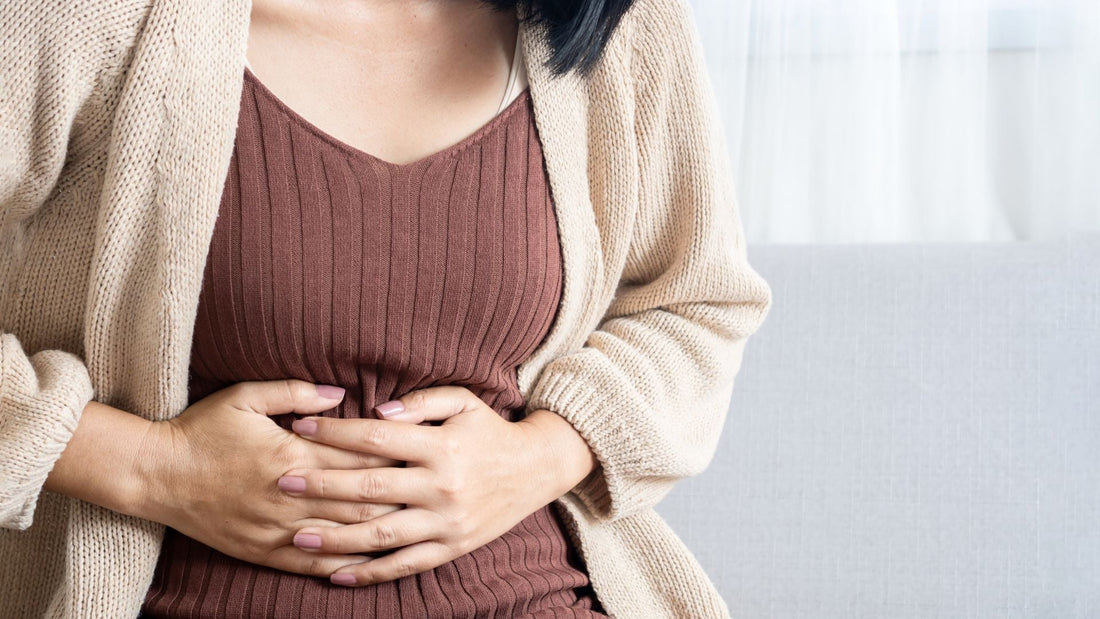
Bloated After Every Meal? This Herbal Tea Could Be Your Gut’s Best Friend
Share
You just finished eating, and instead of feeling satisfied and energized, your stomach feels swollen, tight, and uncomfortable. Sound familiar? Bloating after meals is a frustrating and surprisingly common issue. For many people, it is not about how much you eat but how your digestive system reacts to everyday foods.
While over-the-counter remedies may provide short-term relief, they do not get to the root of the problem. If you're looking for a natural way to calm your belly and feel good after eating, herbal teas can be one of the simplest yet most effective solutions.
In this article, you’ll discover why bloating happens after meals, why herbal teas are a better long-term option than pills, and how specific herbs like dandelion, mint, licorice, and fennel can become your gut’s best allies.
Why Do You Feel Bloated After Eating?
Bloating is not a disease, but it is a clear sign that your digestive system is under stress. Understanding the common causes of post-meal bloating can help you address the issue with care, instead of just covering it up.
Common Causes of Bloating After Meals
Overeating or Eating Too Quickly
When you eat too fast, you swallow extra air, and your stomach does not have time to signal fullness. This leads to gas buildup and sluggish digestion.
Low Digestive Enzymes or Bile Flow
If your body is not producing enough digestive enzymes or bile, it cannot break down food efficiently. Fats, in particular, are hard to digest without adequate bile from the liver.
Gut Microbial Imbalance
Your gut houses trillions of bacteria. An imbalance in this ecosystem, also called dysbiosis, can lead to excess fermentation and gas production after eating.
Constipation or Slow Transit
When your bowels are slow, undigested food can ferment and create gas. Bloating is often one of the first signs of sluggish elimination.
Food Sensitivities
Certain foods may not agree with your system. Common culprits include dairy, gluten, beans, and artificial sweeteners.
Stress and the Gut-Brain Link
Your brain and gut are connected. Stress, anxiety, or poor sleep can affect how well your digestive system functions, leading to bloating even after light meals.
The good news is that herbal teas target several of these root causes gently and naturally.
Quick Fixes vs. Natural Support: Why Herbal Tea Is Better
Most people reach for antacids, gas pills, or digestive enzymes when bloating strikes. While these may provide temporary comfort, they do not nourish the digestive system or help it function better over time.
Herbal teas, on the other hand, work with your body. They help stimulate digestion, relax tense muscles, reduce gas, and support detoxification. They do this without introducing synthetic chemicals into your system, making them ideal for long-term use.
What makes herbal teas even more beneficial is that sipping warm liquid after a meal relaxes the nervous system, helps food pass through more easily, and encourages mindful digestion.
Let’s take a look at the top herbal teas for post-meal bloating relief.
Top Herbal Teas That Help After Every Meal
Dandelion Root Tea
Dandelion root is one of the most respected herbs for digestion and liver health. Though often dismissed as a common weed, its roots have powerful cleansing and anti-bloating properties.
Dandelion supports bile production in the liver. Bile is necessary for breaking down fats, which many people struggle to digest properly. Poor bile flow can lead to sluggish digestion, bloating, and even constipation.
Dandelion also acts as a mild diuretic. If your bloating is due to fluid retention, especially around your period or after salty meals, dandelion can help your body release that water without flushing out essential minerals.
Additionally, dandelion contains prebiotic fibers that support a healthy gut microbiome, helping to reduce gas and improve long-term digestion.
Best time to drink: In the morning to support liver function, or after a rich meal.
Peppermint Tea
Peppermint is perhaps the most popular herbal remedy for digestive discomfort, and for good reason. Its cooling compound, menthol, relaxes the smooth muscles of the gastrointestinal tract, allowing gas to pass more easily and reducing spasms.
When you feel bloated or cramped after eating, peppermint tea can provide fast relief. It also helps with indigestion and nausea, making it a great choice for those prone to stomach discomfort after large meals.
Scientific studies have even shown peppermint oil to be effective for relieving symptoms of IBS. Peppermint also calms the nervous system, which is useful if your bloating is stress-related.
Best time to drink: After meals, especially when you feel full, gassy, or tight in the belly.
Licorice Root Tea
Licorice root has a long history in traditional Chinese and Ayurvedic medicine as a healing herb for the stomach and intestines. It soothes inflammation, reduces acidity, and supports the repair of the digestive lining.
Licorice is especially helpful for those dealing with stress-induced bloating. It supports adrenal health, helping the body better handle stress, which is a hidden cause of many digestive issues.
For women, licorice also supports hormone balance, making it effective for bloating related to menstrual cycles or hormonal imbalances.
It is worth noting that licorice contains glycyrrhizin, which can raise blood pressure in high doses. Look for teas labeled DGL (deglycyrrhizinated licorice) for safer daily use.
Best time to drink: Midday or after lunch, especially if you’re experiencing hormonal or stress-related bloating.
Fennel Seed Tea
Fennel seed is a traditional post-meal digestive used in many cultures. It has a light, sweet flavor and powerful carminative properties, meaning it helps reduce gas formation and relieves bloating.
Fennel improves gut motility, which helps food move through your system more smoothly. This is ideal if you feel heavy or stuck after eating. It also supports lactation and hormone health, making it a favorite among women.
Many Indian restaurants offer fennel seeds after meals for a reason. It is one of the fastest-working herbs when you feel bloated or uncomfortable.
Best time to drink: Directly after a meal or whenever you feel gassy or overfull.
Ginger Tea
Ginger is another excellent digestive herb that helps stimulate gastric juices, improve motility, and ease bloating. It also reduces inflammation in the gut and can be helpful if you experience heartburn or nausea with your bloating.
Ginger works well when combined with other herbs like fennel or mint. It adds warmth and increases circulation, which supports overall digestive function.
Best time to drink: After a heavy or greasy meal, or if you feel nauseous or sluggish after eating.
How to Use Herbal Tea for Best Results
To get the most out of herbal teas for bloating, timing and consistency matter.
-
Drink your tea 15 to 30 minutes after meals to support digestion.
-
For chronic bloating, drink a cup twice daily for a few weeks.
-
Choose organic, whole herb teas whenever possible to avoid additives or low-quality blends.
-
Use loose leaf or high-quality tea bags and steep for 7 to 10 minutes to extract the full benefits.
Pairing your tea ritual with better eating habits such as chewing slowly, avoiding carbonated drinks during meals, and reducing processed foods will enhance the results.
Conclusion
If you feel bloated after every meal, it is time to listen to your body and support your digestion naturally. Herbal teas like dandelion, licorice, mint, fennel, and ginger offer gentle, effective relief without the side effects of medications. These herbs work with your body to restore balance, soothe discomfort, and help your gut feel its best.
Make herbal tea a part of your daily wellness routine and enjoy meals without the fear of post-meal bloating.
Explore our Herbal Tea Collection today and discover blends designed to help you feel lighter, healthier, and more comfortable naturally.
Frequently Asked Questions
Can I drink these teas every day?
Yes. Herbal teas like mint, fennel, and dandelion are safe for daily use. Just be mindful with licorice if you have blood pressure issues.
How long before I see results?
Some herbs like peppermint and fennel work within 30 minutes. Others like dandelion and licorice may take several days of consistent use.
Do I need to blend all the herbs together?
You can, but it is not required. Many people benefit from single-herb teas or find blends that combine two or more of these digestive herbs.
Can I use these teas if I am pregnant or breastfeeding?
Some herbs, like peppermint and fennel, are generally safe in moderation. Always consult a healthcare provider before using herbal remedies during pregnancy.
